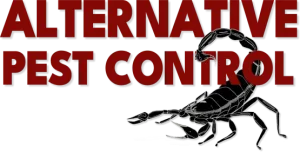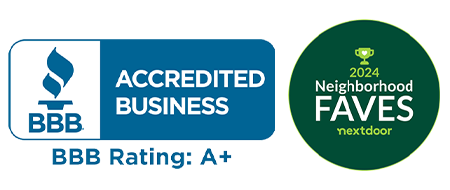In recent years, the pest control industry has witnessed a paradigm shift toward sustainability and environmental responsibility. One of the most promising developments in this direction is the concept of reduced impact service (RIS). This approach emphasizes minimizing the negative effects of pest control practices on the environment, non-target organisms, and human health, while still effectively managing pest populations. Reduced impact service is gaining traction as homeowners and businesses become more conscious of the ecological footprint of traditional pest control methods.
In this article, we will explore the core principles of reduced impact service in pest control, the techniques involved, and the benefits it offers to both the environment and customers.
What is Reduced Impact Service (RIS)?
Reduced Impact Service (RIS) in pest control refers to the use of techniques and practices that limit the harmful environmental, social, and health impacts associated with traditional pest management methods. This holistic approach combines integrated pest management (IPM), green or eco-friendly products, and preventive measures designed to minimize chemical use and target pest problems with precision.
At its heart, RIS is about being more thoughtful and less invasive in pest control. It seeks to provide long-term solutions that control pests while protecting ecosystems, promoting biodiversity, and safeguarding human health.
The Core Principles of Reduced Impact Service
The principles of reduced impact service revolve around three key elements: prevention, precision, and responsible product use. Let’s look at each of these in more detail.
1. Prevention
One of the best ways to reduce the impact of pest control is to prevent infestations before they even occur. RIS often focuses heavily on exclusion techniques, sanitation, and habitat modification to reduce the likelihood of pests gaining access to homes or buildings. This may include:
- Sealing entry points: Inspecting and closing gaps, cracks, and holes in walls, windows, and doors to prevent pests from entering. Tight fitting screens and weather stripping will go a long ways towards keeping pests out.
- Regular cleaning: Keeping areas free from food debris, waste, and standing water, which can attract pests like ants, cockroaches, or rodents.
- Landscaping adjustments: Properly maintaining yards to avoid conditions that harbor pests, such as overgrown vegetation, stagnant water, or clutter. Trimming trees, grass, bushes, etc. will help to keep bugs and other critters from accessing the home.
By addressing the root causes of pest infestations, RIS reduces the need for reactive treatments, which are typically more invasive and may require multiple treatments or trips.
2. Precision
Precision refers to targeting pest problems at the source and applying treatments with accuracy. In a reduced impact service, pest control professionals aim to use the least amount of chemicals possible, applying them only where necessary and in the most effective manner. This can be achieved through:
- Spot treatments: Instead of blanket spraying, which can disperse chemicals into the environment, pest control specialists focus on treating specific problem areas, such as cracks, crevices, and nests. Care is taken to apply liquids only to the foundation and eaves which are problem areas. Yard treatments are no longer needed unless it is for chiggers, or a lawn insect causing damage. Everything else can be controlled with a more basic and less invasive treatment.
- Traps and monitoring devices: Non-toxic, mechanical traps are used to capture pests or monitor populations. This helps professionals assess the extent of the infestation before applying any treatment. Glue boards do a great job at identifying problem areas, what insects are getting inside and the effectiveness of treatments on things like roaches.
- Baiting systems: These provide targeted doses of pest control substances to specific pests, reducing unnecessary exposure to the environment. There are baits for almost every pest now and can be applied without affecting the rest of the ecosystem negatively.
This level of precision not only improves the efficacy of pest control efforts but also ensures that the use of chemicals and pesticides is minimized, which is a key goal of RIS.
3. Responsible Product Use
When chemical products are necessary, reduced impact services prioritize the use of eco-friendly and low-toxicity solutions. There has been a significant rise in demand for products that are certified green, such as:
- Biological agents: These include beneficial nematodes, parasitoid wasps, and other natural predators that control pest populations without the need for chemicals.
- Botanical pesticides: Derived from plants, these products are often less toxic to humans and wildlife than synthetic chemicals.
- Insect growth regulators (IGRs): These disrupt the life cycle of insects, preventing them from maturing or reproducing without posing a threat to other species.
- Low-toxicity synthetic chemicals: When necessary, pest control companies may use reduced-risk chemicals that have been shown to have less environmental impact and lower toxicity to humans and animals.
These products are carefully selected for their effectiveness and their reduced risk to the environment. By using eco-friendly and sustainable options, RIS helps minimize harmful runoff, reduces the contamination of water sources, and protects beneficial organisms like bees and other pollinators.
The Benefits of Reduced Impact Service
The shift to reduced impact service provides numerous benefits, both to the immediate environment and to the long-term health of ecosystems.
1. Environmental Protection
One of the most compelling reasons for adopting RIS is its positive impact on the environment. Traditional pest control methods often rely on chemical sprays that can end up in local water supplies, harming fish and other aquatic life. RIS minimizes the environmental footprint by using non-toxic treatments, biological agents, and precision application methods that reduce the potential for chemical runoff. Sprays are not used when winds are higher than 10 mph to control drift.
Moreover, RIS practices help preserve biodiversity by minimizing the accidental poisoning of non-target species. For example, integrated pest management and biological controls often target specific pests without harming beneficial insects, such as ladybugs or pollinators like bees.
2. Health and Safety
Traditional pest control methods often rely on potent chemicals that can pose health risks to humans and pets. Residual chemicals left behind after treatment can contribute to indoor air pollution or cause allergic reactions. By reducing the use of harmful chemicals, RIS minimizes the risk of exposure to toxic substances, promoting healthier living spaces. With the industry going towards perimeter-only treatments, it greatly reduces human exposure to chemicals, while providing the same results and benefits of treatment.
Additionally, the use of eco-friendly products and natural pest control methods is safer for children, pets, and individuals with sensitivities or respiratory issues. In homes with young children or elderly family members, this added level of safety is a significant advantage.
3. Cost-Effectiveness
Though reduced impact service may seem like a more expensive option initially, it can actually prove more cost-effective over time. By preventing infestations before they start, utilizing precision treatments, and reducing the need for repeat applications, homeowners may see a decrease in the overall cost of pest control.
4. Long-Term Pest Control
Traditional pest control methods often take a reactive approach, treating symptoms rather than addressing the underlying causes of infestations. Reduced impact service, however, focuses on integrated pest management, which is more proactive and sustainable. Through a combination of preventative measures, monitoring, and strategic treatments, RIS provides long-term control that helps reduce the likelihood of future infestations.
Conclusion
The growing demand for environmentally responsible pest control solutions has led to the rise of reduced impact service as an alternative to traditional methods. By prioritizing prevention, precision, and responsible product use, RIS minimizes the environmental and health impacts associated with pest management while still delivering effective results.
Our goal is always to provide the best results with the smallest amount of exposure and mitigate risks involved for all parties. However, our area is a hotbed for scorpions and centipedes and therefore require more reactive and preventative treatments. But our goal is always to provide results the safest and effective way possible and keep you comfortable in your home.



